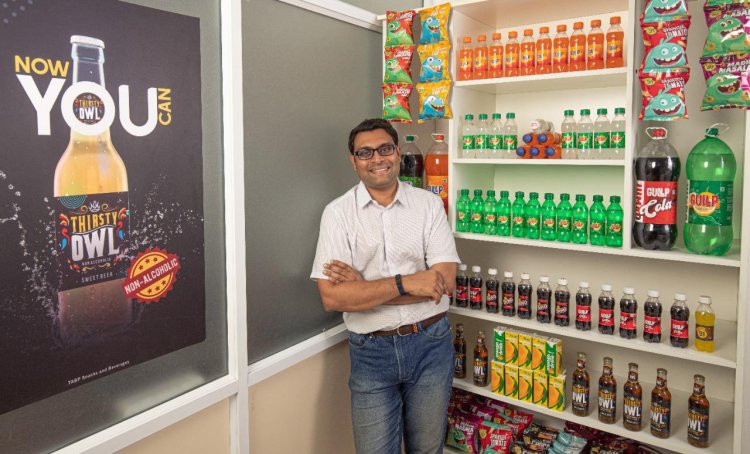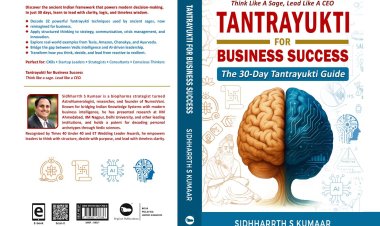Impact of COVID-19 on food & beverage consumer products’ companies
The fast-moving consumer goods (FMCG) segment in India, with the household and personal care sector under its arm, accounts for the fourth largest sector. Of the gambit of products, those under household and personal care contribute to as much as 50% of FMCG sales. Of them, the urban segment is the largest contributor of the overall sales, accounting for 50% of FMCG sales in India. In the last few years, the FMCG market has grown leaps and bounds in rural pockets compared to urban India. It is interesting to note that the FMCG products make up for 50% of the total rural spending.
The supply chain in India was greatly impacted due to the coronavirus
The deadly COVID-19 took the entire world by surprise. Different countries adopted various strategies and methods to deal with the coronavirus. When India was dealing with the first wave of the pandemic, the Government of India announced a national lockdown. As many as 1.3 billion Indians of the second most populous country were confined to their homes for a period of 21 days. In a bid to contain the spread of the virus, the Indian Government announced an extension of the national lockdown. Manufacturing units, industries and factories, which were otherwise operational with full capacity, downed shutters and the supply chain was greatly impacted.
Economists recall this phase as one of the worst economic slowdowns that the nation has witnessed in many years. However, the priority of the Indian government remained to contain the spread of the coronavirus. Various steps and measures were planned and implemented in these lines.
Impact of COVID-19 on food & beverage consumer products’ companies
Packed foods, ready-to-eat food, fresh food, bottled water, and beverages among others make up for the fastest moving products in the FMCG chain of products. With the supply chain already impacted, manufactures of FMCG products, especially those involved in making and selling food and beverages, faced either stockpiling or stockouts. This left the FMCG sector crippled.
How a Coimbatore-based start-up that is involved in making and selling snacks and beverages dealt with the pandemic
The worst was over, assumed those related directly or indirectly with the FMCG sector when India tided over the first wave of the pandemic. However, the second wave of the coronavirus pandemic proved to be more devastating than its predecessor. However, known to tide over, business challenges, one start-up which is based out of Coimbatore christened TABP Snacks and Beverages Pvt. Limited founded by Prabhu Gandhikumar instead of doing different things during the pandemic chose to do things differently during the period. When quizzed about how under his leadership the company successfully tided over the crises, Prabhu Gandhikumar said, “The first thing we took care of in the pandemic is ensuring that our employees were safe. We also did vaccination camps to get as many employees vaccinated as we can. With Millet Might already under our portfolio, the pandemic has made people realise the importance of consuming healthy food. The healthy Millet Might which is made from safe-to-eat ingredients has and continues to have many takers, thanks to the pandemic and its impact, people from all walks of life have switched to consuming healthy food.”
The COVID-19 pandemic made consumers realize the value of consuming healthy food
Call it a blessing in disguise, the Covid pandemic made a major chunk of the population switch to consuming a healthy diet. Health and wellness experts reiterate that millets are one of the completely nutritious foods to consume. Thanks to the pandemic, several families across Tamil Nadu and the rest of the country embraced millets. Available in many forms, one of the best ways to get back to our roots by taking advantage of millets is the FMCG product "Millet Might".
Under the banner of Tanvi operates Millet Might. The company is involved in manufacturing and selling Millet Flakes and Millet Muesli in six varieties. While several families across the country switched to healthy living by including Millet Flakes or Millet Muesli in their diet, the company faced the challenge of making sure that the end product reaches the consumer. In the backdrop of the Covid restrictions that are in place, the company has announced on its website that delivery of the product and delivery dates may differ. Such is the impact that COVID-19 has had on food & beverage consumer products’ companies.
While groceries and essentials saw a spike in sales, footwear and luxury products saw a depletion in sales
The state and national lockdowns that were imposed during the two waves of the pandemic had forced consumers to look at alternative ways to shop for groceries and essentials. It was during these periods that consumers switched to shopping online for FMCG products that they cannot do without. On one hand, cashless transactions and contactless delivery of fruits, vegetables, and other essentials became so popular that people preferred shopping this way. On the other hand, the work from home culture and people being confined to their homes made people give a miss to shopping for apparel, footwear, and accessories, including items of luxury. People instead opted to shop for items that were necessary. Of them, a majority of consumers who regularly purchased beverages and snacks also chose to refrain from purchasing and consuming them, one of the reasons being that the consumers became health conscious. A majority of FMCG companies involved in making and selling snacks and beverages saw a steep drop in sales. This is the impact that COVID-19 has had on the food & beverage consumer products’ companies.
The road ahead for the FMCG sector is smooth
If numbers are to be believed, in the first quarter of the year 2021, the FMCG sector in India grew by 9.4%. After two disappointing quarters, pockets in the metro market recorded positive growth. The rural markets, on the other hand, registered a 14.6% increase during the same period. According to experts, with the backing of government initiatives, the road ahead for the FMCG sector in India is rather smooth. In between coming to terms with the impact of the second wave of the deadly pandemic and in the backdrop of preparing to encounter the third wave of the pandemic, the FMCG sector is currently in a comfortable position. According to projections, the Indian processed food market is set to expand to US $470 billion by 2025.


































